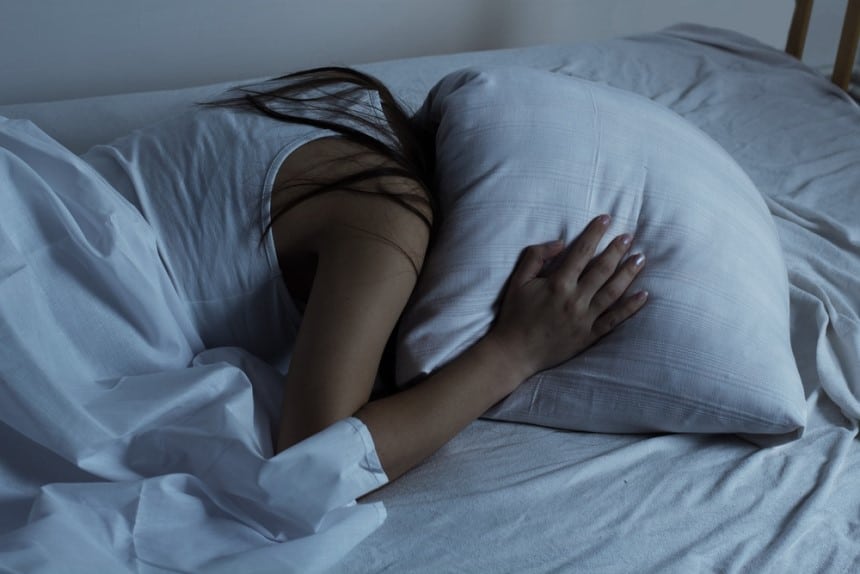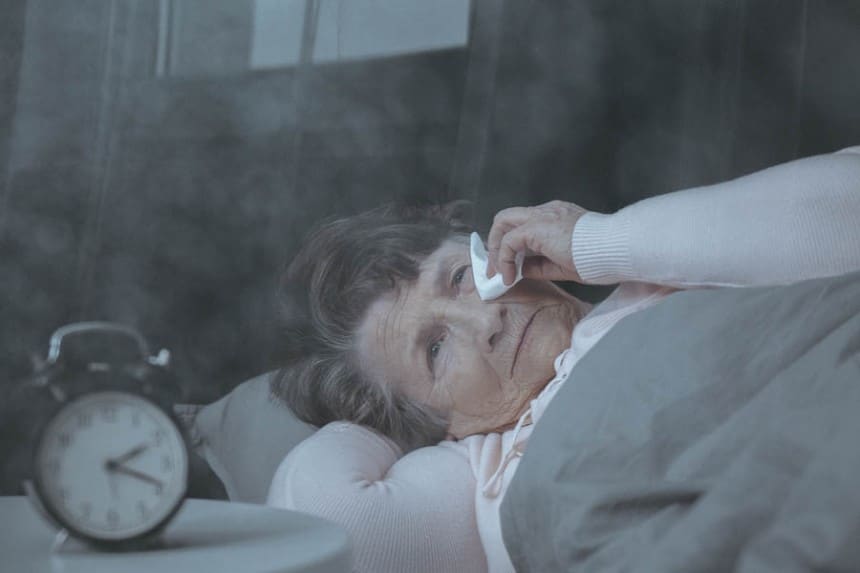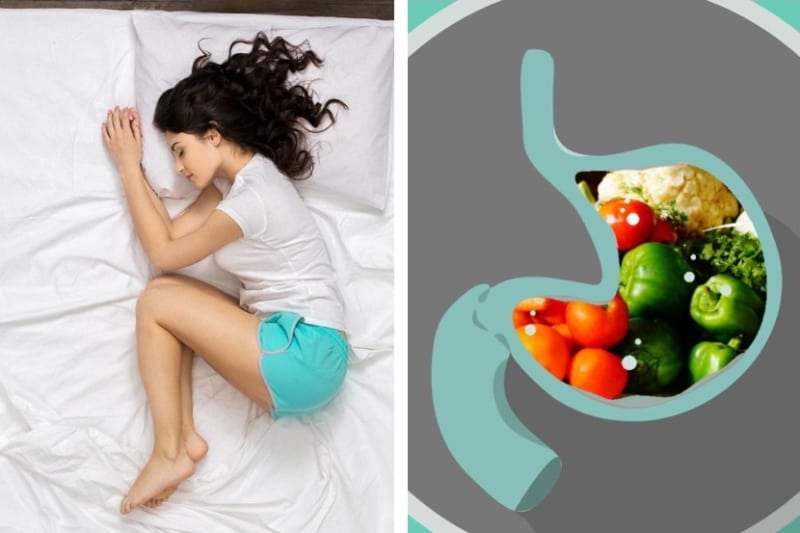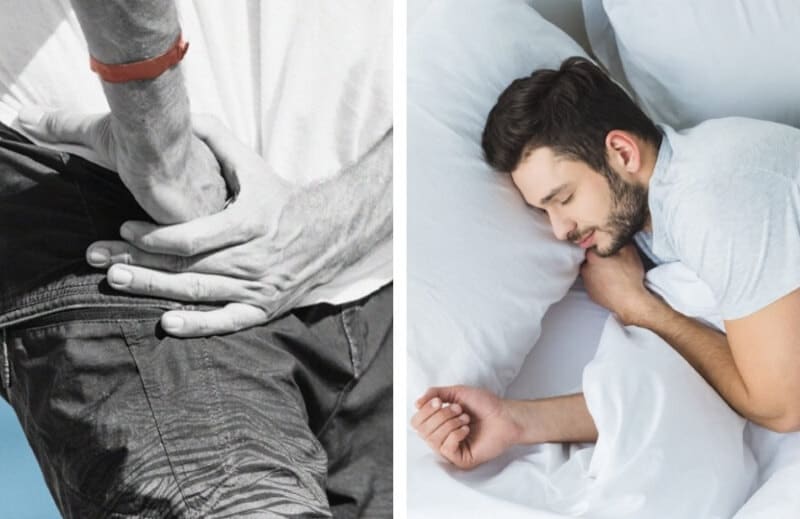

Dreams are an amazing phenomenon. Our subconscious weaves together a tapestry from hidden thoughts and desires and if we’re lucky, we get to remember what is played out at night. However, what does is mean if you wake up crying from a dream? Sometimes we can piece together the threads of the dream but other times we are left stumped as to what actually happened. If you’ve ever found yourself in bed crying, without really knowing why, this article is for you. First, we’ll reassure you that it is a natural phenomenon, and then we’ll talk about what triggers it and what you can do to prevent it from happening again.
We would like to think we are in charge our thoughts, but this is simply not true, even while we sleep. Have you ever been in a dream and felt with complete certainty that it is real? Well, if something is frightening or sad in our dream, our brain responds to it like it would in real life, and tears are a natural response to such experiences.
Honestly, everyone can be susceptible to crying in sleep. Children, who have more active imaginations and who naturally cry more often, will cry in their sleep more than adults.
However, elderly people and adults in a depressive state are also more likely to cry in their sleep.
 Can it be a good thing?
Can it be a good thing?Even though we may naturally shun the idea of crying, it can be quite therapeutic. Those who have suffered some form of trauma may be more liable to cry in their sleep. While it can be incredibly hard to relive that trauma, you may be able to work through past memories and come out stronger because of it.
There are many reasons why people cry during sleep, some more obvious than others.
Our dreams can by of a myriad of themes, and some may just be overly emotional. You may revisit a loved one who has passed away. Or you may experience something frightening. Remember that your brain thinks dreams are real in the moment, so if you would naturally cry over something in real life, if this appears in your dream, you can expect to cry in your sleep, too.
There is a difference between nightmares and night terrors but both can cause crying during sleep. Night terrors often happen which small children. They can awake crying or screaming with no knowledge or remembrance of what happened. This is also quite concerning for a parent but luckily, this phase often passes quickly.
As for nightmares, everyone can have them. They are often triggered by thoughts or experiences before going to bed. If you don’t want to have nightmares, it is often advised not to watch scary movies at night.
However, some people have nightmares that seemingly come out of nowhere. This can be your brain processing old memories or even working through an image of thought stuck in your mind.
For both kids and adults, a weighted blanket might be the solution. A product like the Luna Adult & Kids Weighted Blanket provides a calmer environment but the bamboo material ensures you won’t overheat.
As humans we try really hard to be in control of our emotions. But while we sleep our subconscious takes over and we can quickly lose that control.
If you have recently lost a loved one but don’t want to dwell on their passing, these deep seeded thoughts can come out when we sleep.
You should always start with being comfortable in your own bed. A latex mattress topper can make it easier to drift off to sleep and if you feel more at peace at the beginning of the night, this feeling may continue as the night carries on.

Unfortunately, these sounds can seem to go on forever in our dreams before we finally wake up enough to understand what the original source of the sound is.
There are many medications that can make sleep deeper, either as a side effect or as its main purpose. The deeper we sleep, the harder it can be to wake ourselves up. Thus, you may find yourself with more vivid dreams, and these are the ones that can cause emotional stress such as crying.
More vivid dreams can also be a result of sleeping hot, so if you are taking medication, you might want to try a cooling mattress topper. These allow for better airflow, which means you will be more comfortable while asleep, even if you are deep in dreamland.

Even though it is natural to cry, both when you are awake and when you are dreaming, like anything it can become a problem. Basically, if you continually cry when you sleep and want it to stop, then it is a problem that needs to be solved.
Are you sure you’re ok with continually waking up crying? If you aren’t, then you need to do something about it. The longer a problem continues, the harder it is to solve.

Those that due suffer from a head injury should at least start with the right support. There are many wedge pillows that will prop your head up in the right angle to lessen strain on your neck and back.
Unfortunately, it can take a long time to deal with traumatic events. Even if you think you have worked passed the issues, one night of crying while dreaming can bring all those emotions rushing back.
Those that cry and dream about their traumatic experiences should talk with a therapist. They will be able to safely guide you through your past so you don’t have to do it alone.
Depression is on the rise Trusted Source What is depression and why is it rising? | Depression | The Guardian It’s an illness that fills our news pages on an almost daily basis. Juliette Jowit asks what causes depression, who is susceptible and what the best treatment i www.theguardian.com , with the World Health Organization estimating that at least 300 million people worldwide suffer from it. And, with the recent pandemic, this number continues to rise.
It is hard to move through a state of depression and medical help is often necessary. You may be able to deny signs from your waking life that you are depressed, but continually crying while sleeping is a big red flag that something is not right.
Trusted Source Why is sleep important? 9 reasons for getting a good night's rest Sleep is important for energy, avoiding weight gain, lowering the risk of heart disease, and reducing stress. Learn more about the importance of getting a good night’s rest here. www.medicalnewstoday.com It gives your mind a chance to reset, allows you to stay healthy, and keeps you productive. But if you find yourself delaying your bedtime because you are afraid of your dreams, then this is a serious problem.
You should never be afraid of sleep. Be sure to contact your doctor so that you can find a way to sleep without crying and get back to a more regular life.
You can also help set the stage for a good night’s sleep by investing in products made to improve your sleep. Start with a solid foundation, like the Natural Wood Foundation which provides you with all the support you need for peaceful night.
Sleep should be a peaceful experience but unfortunately, it can be a roller coaster of emotions. Dreams can drift into feeling of intense awareness and feelings of helplessness as we can’t control the situations. You may find that you occasionally wake up from a dream crying, and that is ok. But if this happens frequently, it can be a sign of a traumatic event, a state of depression, or even the lingering effects of a brain injury. There are many ways to prevent that unwelcome feeling you get when you wake up crying from a dream. Invest in a comfortable, supportive mattress, use a weighted blanket, and have the right pillow. If you still have issues sleeping, be sure to talk with a medical expert for further help.





